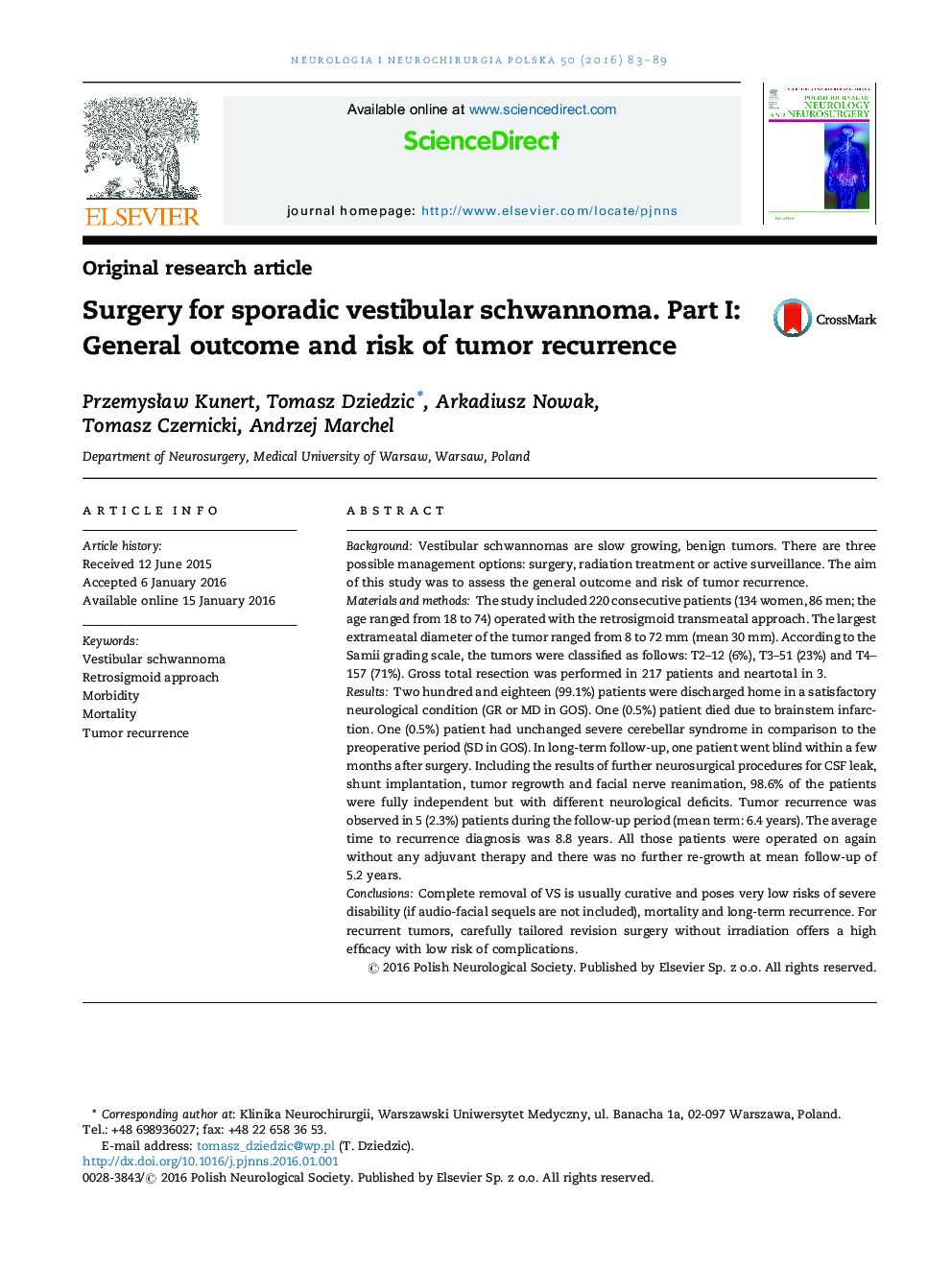| Article ID | Journal | Published Year | Pages | File Type |
|---|---|---|---|---|
| 2152597 | Neurologia i Neurochirurgia Polska | 2016 | 7 Pages |
BackgroundVestibular schwannomas are slow growing, benign tumors. There are three possible management options: surgery, radiation treatment or active surveillance. The aim of this study was to assess the general outcome and risk of tumor recurrence.Materials and methodsThe study included 220 consecutive patients (134 women, 86 men; the age ranged from 18 to 74) operated with the retrosigmoid transmeatal approach. The largest extrameatal diameter of the tumor ranged from 8 to 72 mm (mean 30 mm). According to the Samii grading scale, the tumors were classified as follows: T2–12 (6%), T3–51 (23%) and T4–157 (71%). Gross total resection was performed in 217 patients and neartotal in 3.ResultsTwo hundred and eighteen (99.1%) patients were discharged home in a satisfactory neurological condition (GR or MD in GOS). One (0.5%) patient died due to brainstem infarction. One (0.5%) patient had unchanged severe cerebellar syndrome in comparison to the preoperative period (SD in GOS). In long-term follow-up, one patient went blind within a few months after surgery. Including the results of further neurosurgical procedures for CSF leak, shunt implantation, tumor regrowth and facial nerve reanimation, 98.6% of the patients were fully independent but with different neurological deficits. Tumor recurrence was observed in 5 (2.3%) patients during the follow-up period (mean term: 6.4 years). The average time to recurrence diagnosis was 8.8 years. All those patients were operated on again without any adjuvant therapy and there was no further re-growth at mean follow-up of 5.2 years.ConclusionsComplete removal of VS is usually curative and poses very low risks of severe disability (if audio-facial sequels are not included), mortality and long-term recurrence. For recurrent tumors, carefully tailored revision surgery without irradiation offers a high efficacy with low risk of complications.
